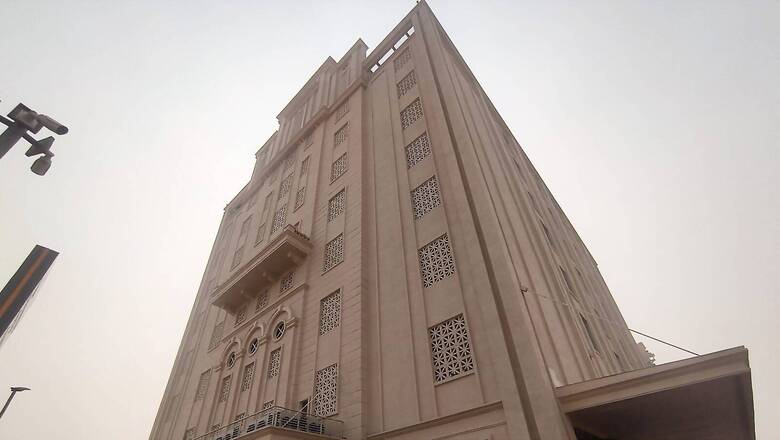
views
India’s second and North India’s first hyper-scale data centre, Yotta D1, was inaugurated by UP CM Yogi Adityanath, in the presence of Rajeev Chandrasekhar the Union Minister of State for Electronics and Information Technology Rajeev Chandrasekhar, other government officials and top IT leaders on October 31 in Greater Noida.
The foundation stone laying ceremony of the next two data centre buildings, Yotta D2 and D3, was also performed during the launch event.
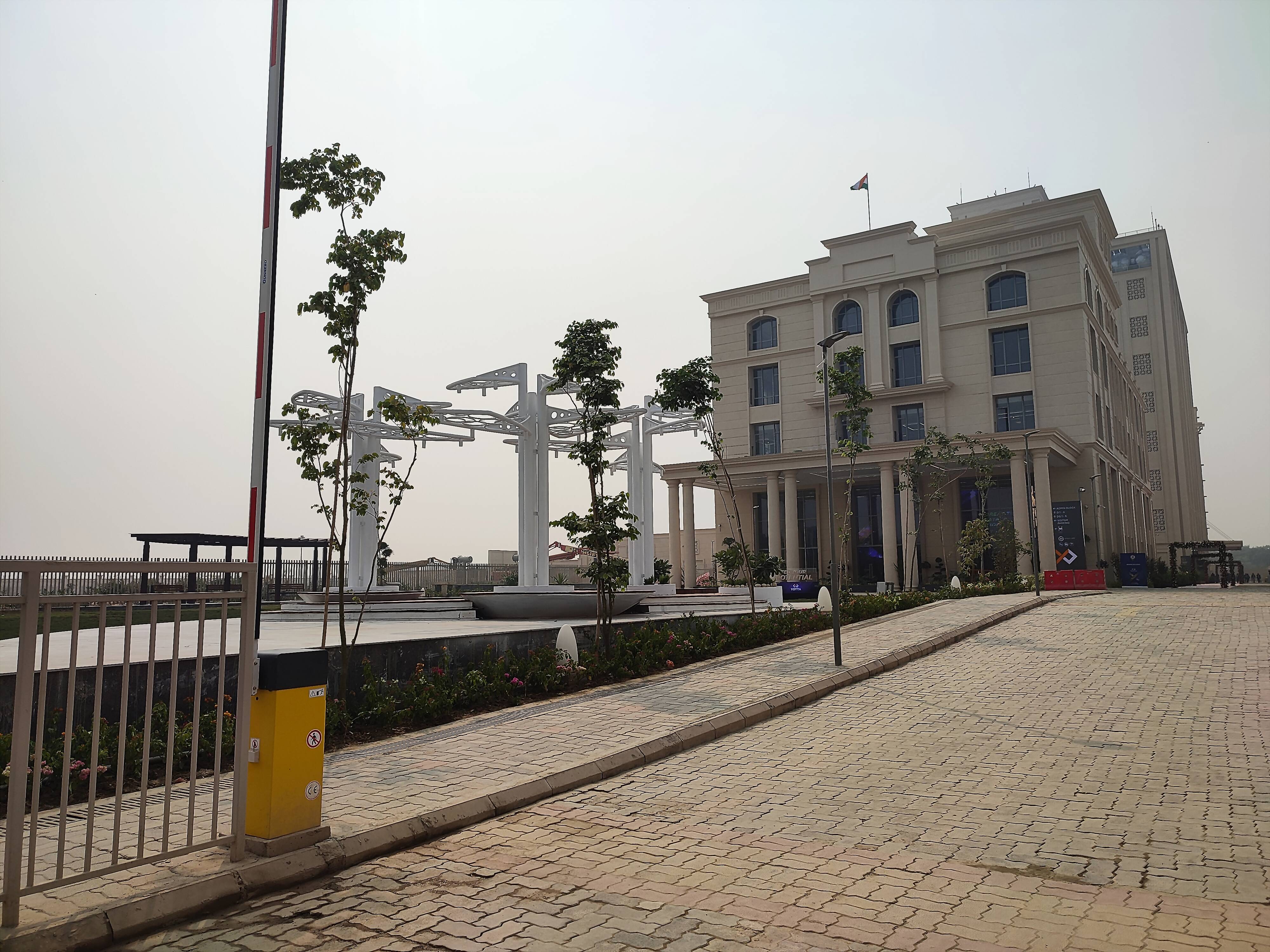
Yotta D1, the first of six data centre buildings in the Greater Noida data centre park, was built and became operational in 20 months with an investment of approximately Rs 1,500 crore.
The data centre has a CCTV room, needed to ensure the safety of the centre, it also has a separate BMS room.
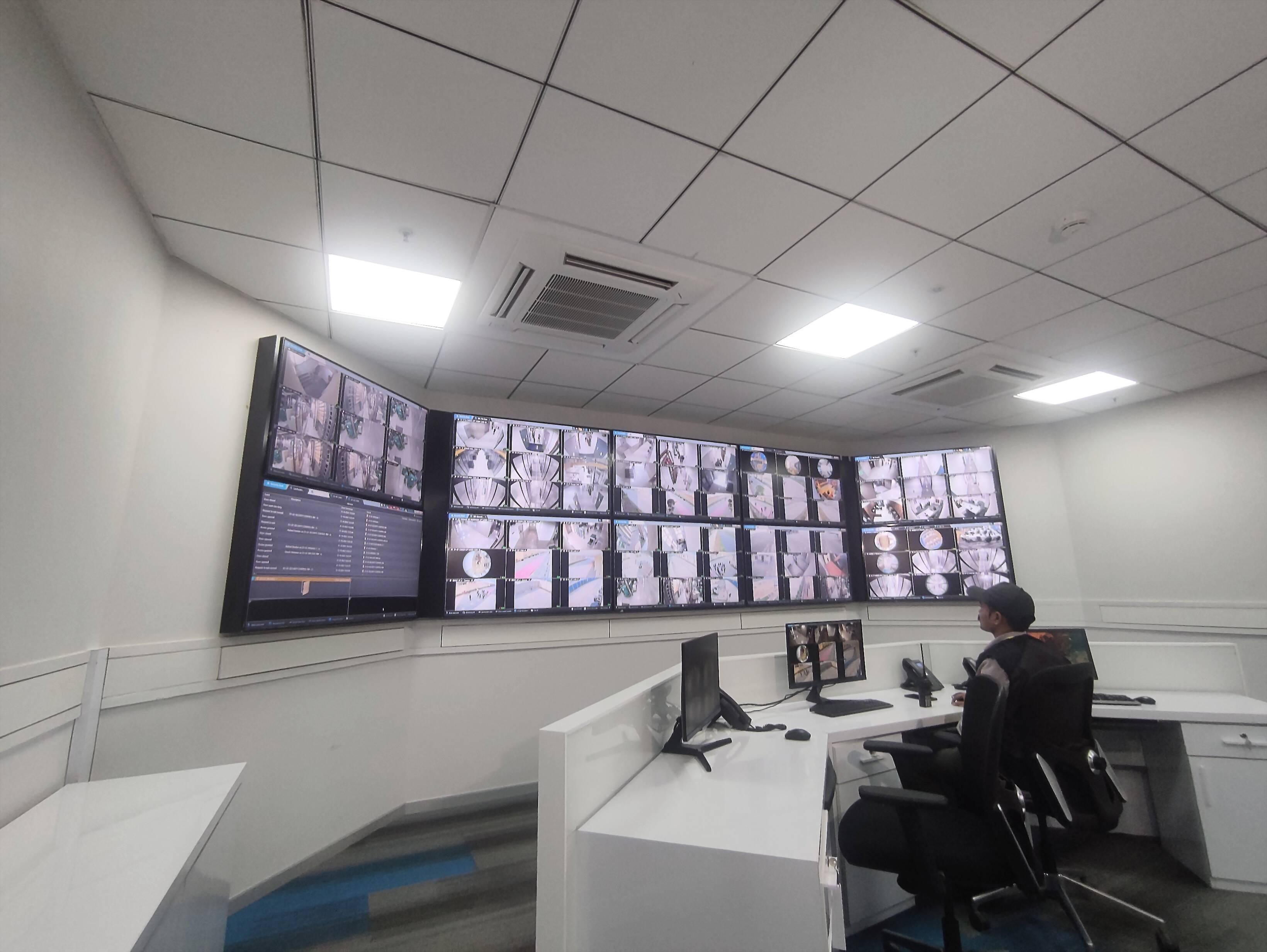
BMS or building management systems are used to monitor and manage a facility’s mechanical, electrical, and electromechanical services.
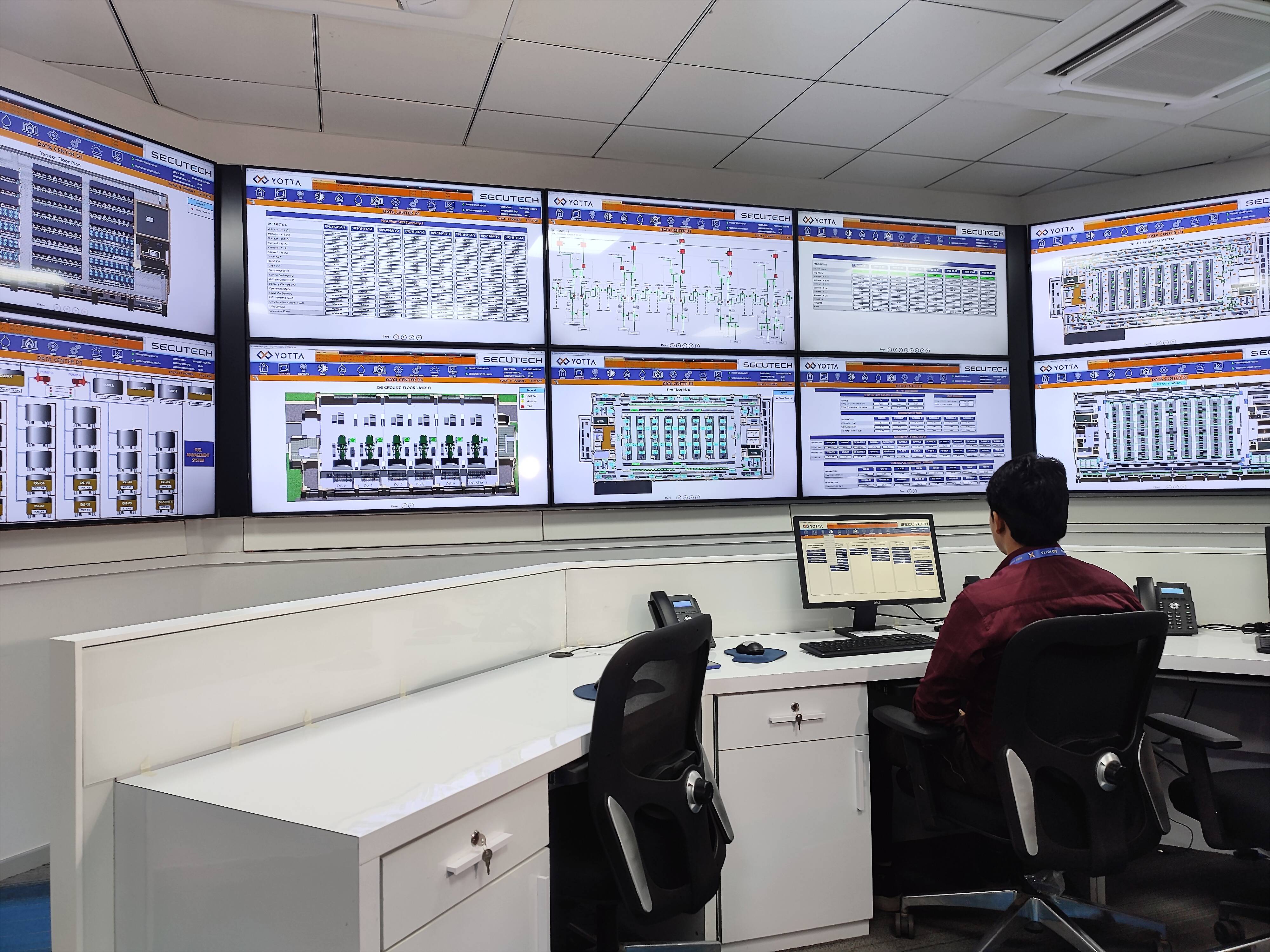
Inside the data centre, there is a transformer room and a battery area, while at the top of the Yotta D1 the chillers are placed.
When fully operational, the centre is expected to see an additional investment of Rs 5,000 crore in IT equipment.
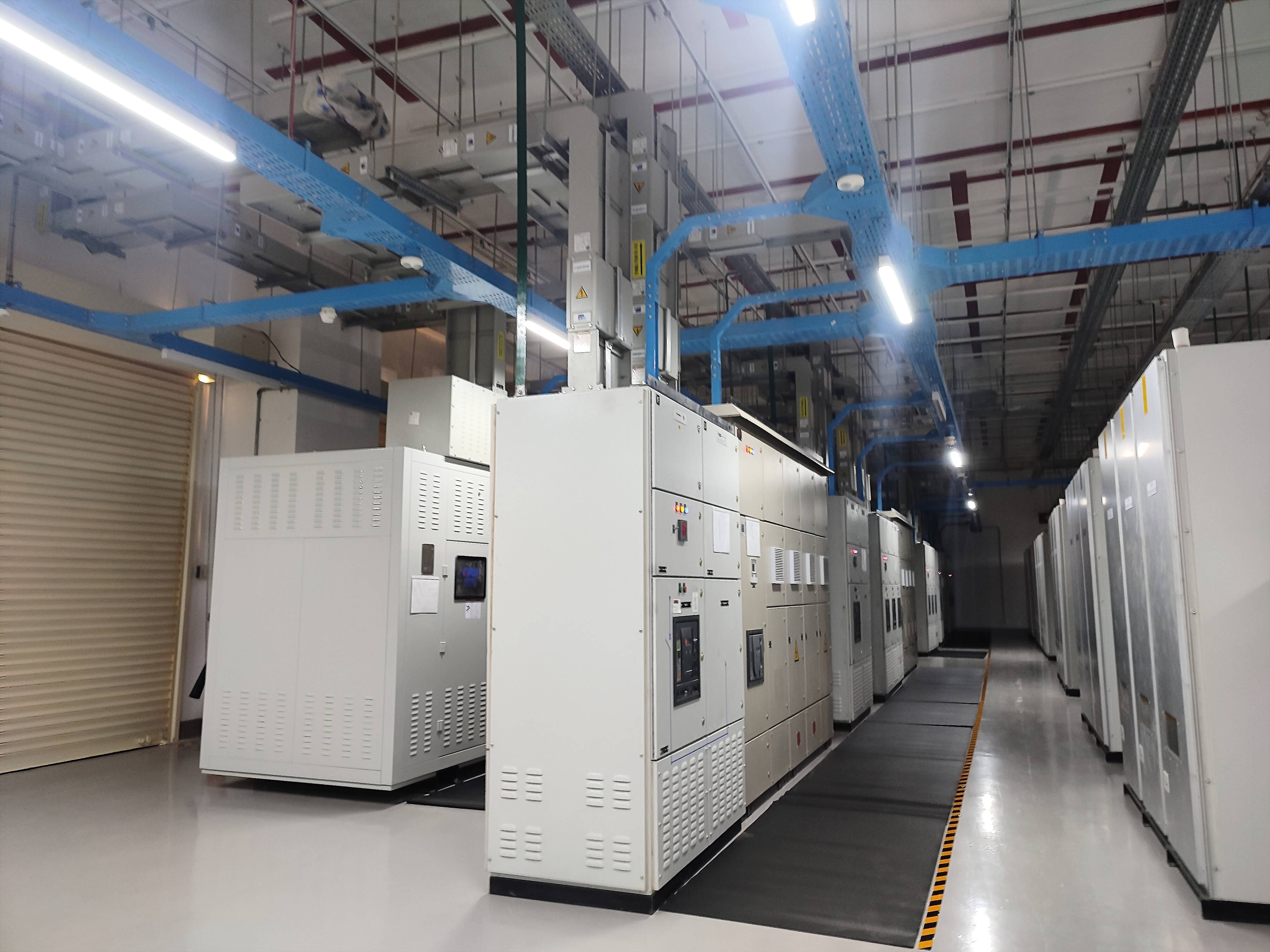
It spans 3,00, 000 sq ft, across the ground plus 7-floor and offers an IT load capacity of 28.8 megawatts.
The data centre is capable of housing 5,000 racks across seven server floors and offers fail-safe, 48-hour power backup on full load.
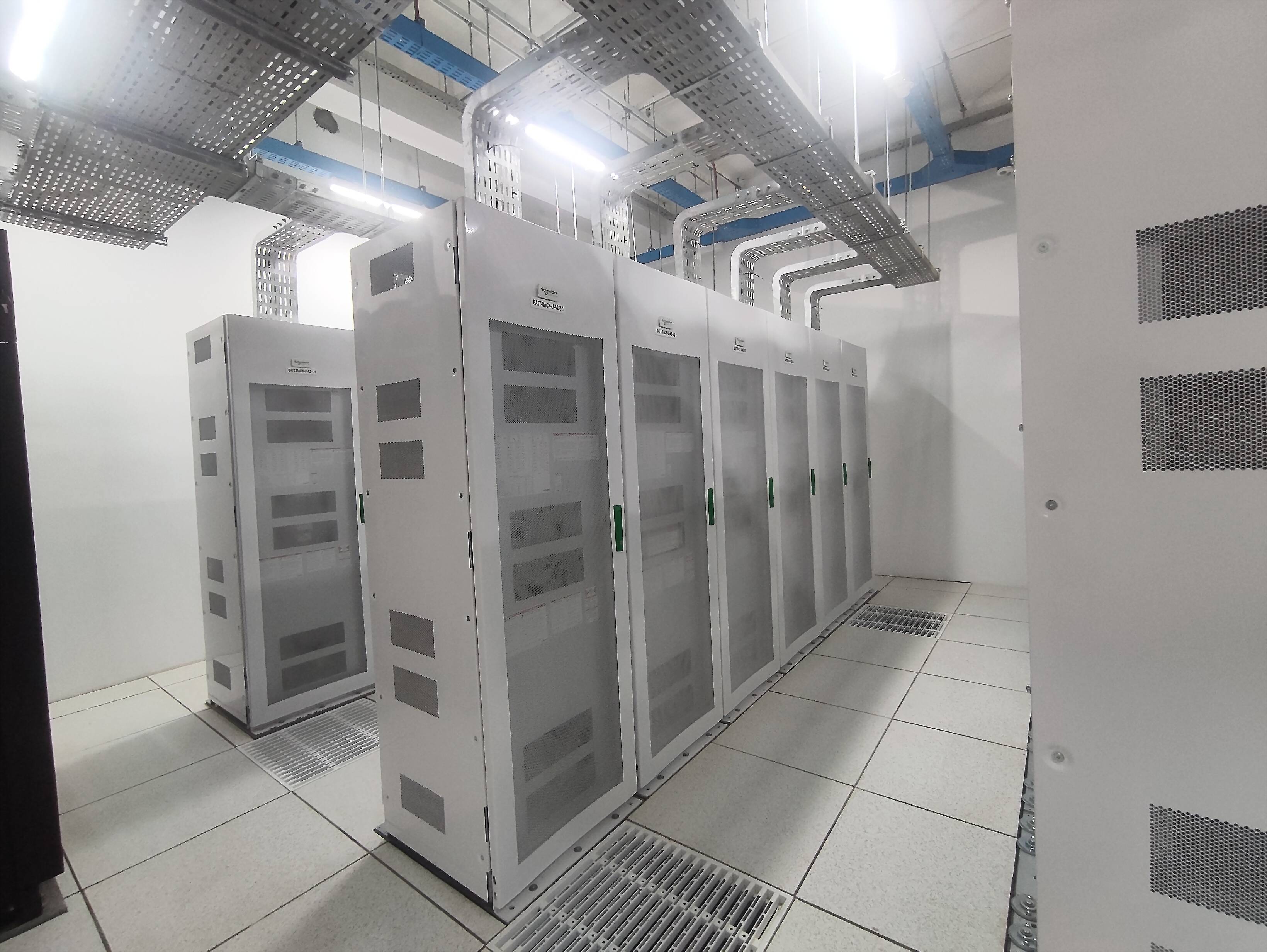
A data centre rack is a physical steel and electronic framework used to house servers, networking equipment and cables.
WHAT IT MEANS
The Yotta Greater Noida Data Center Park will offer a total capacity of 30,000 racks, four dedicated fibre paths and an IT power capacity of 160 megawatts.
At the inauguration event, Yotta also entered into an MoU with the UP Government to invest Rs 39,000 crore in a phased manner over 5-7 years. This investment will go towards constructing the data centre campus and procuring IT equipment, as well as other hardware by Yotta and its customers.
However, there is a massive amount of technicality involved to run and protect such data centres.
As heat waves become more common and severe as a result of climate change, data centres like Yotta, which serve as the backbone for online services, are at risk of overheating.
As Yotta decided to build a data centre in a region which faces a concerning level of heatwaves during summer every year, it could face challenges too.
Sunil Gupta, the co-founder and CEO of Yotta Infrastructure, told News18 that in the summer, when there is a lot of heat, the adiabatic cooling system will help the chillers to reduce the heat, which is similar to how the house coolers function.
“During summer, the adiabatic system will be functioning so that the external heatwave can be avoided,” he said.
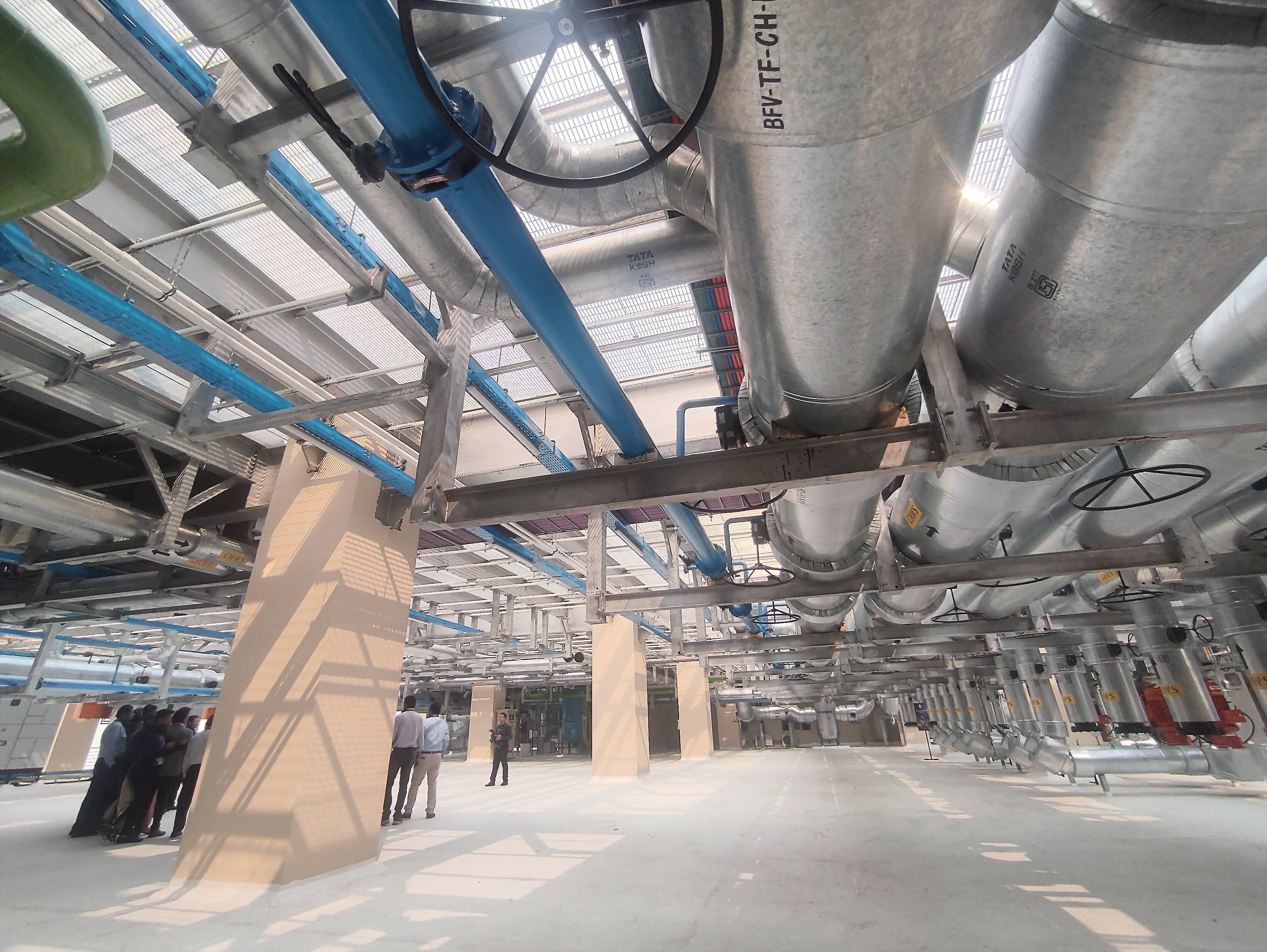
However, he added that “the good part about Delhi is that there is a big summer and big winter as well” and there is no need to run the chillers during the winter “as we have free and natural cooling available”.
He further stated that Yotta has an automated system which identifies whether the temperature outside the centre is lesser than the desired temperature inside the data facility.
According to Gupta, in such cases, thanks to the system the chillers will automatically stop working and throughout the winter, the external cool air will get inside the centre to maintain the temperature of the internal environment.
“In summer, we will use our chillers for cooling and in winter we will use the natural wind cooling and optimise the power usage,” the CEO noted.
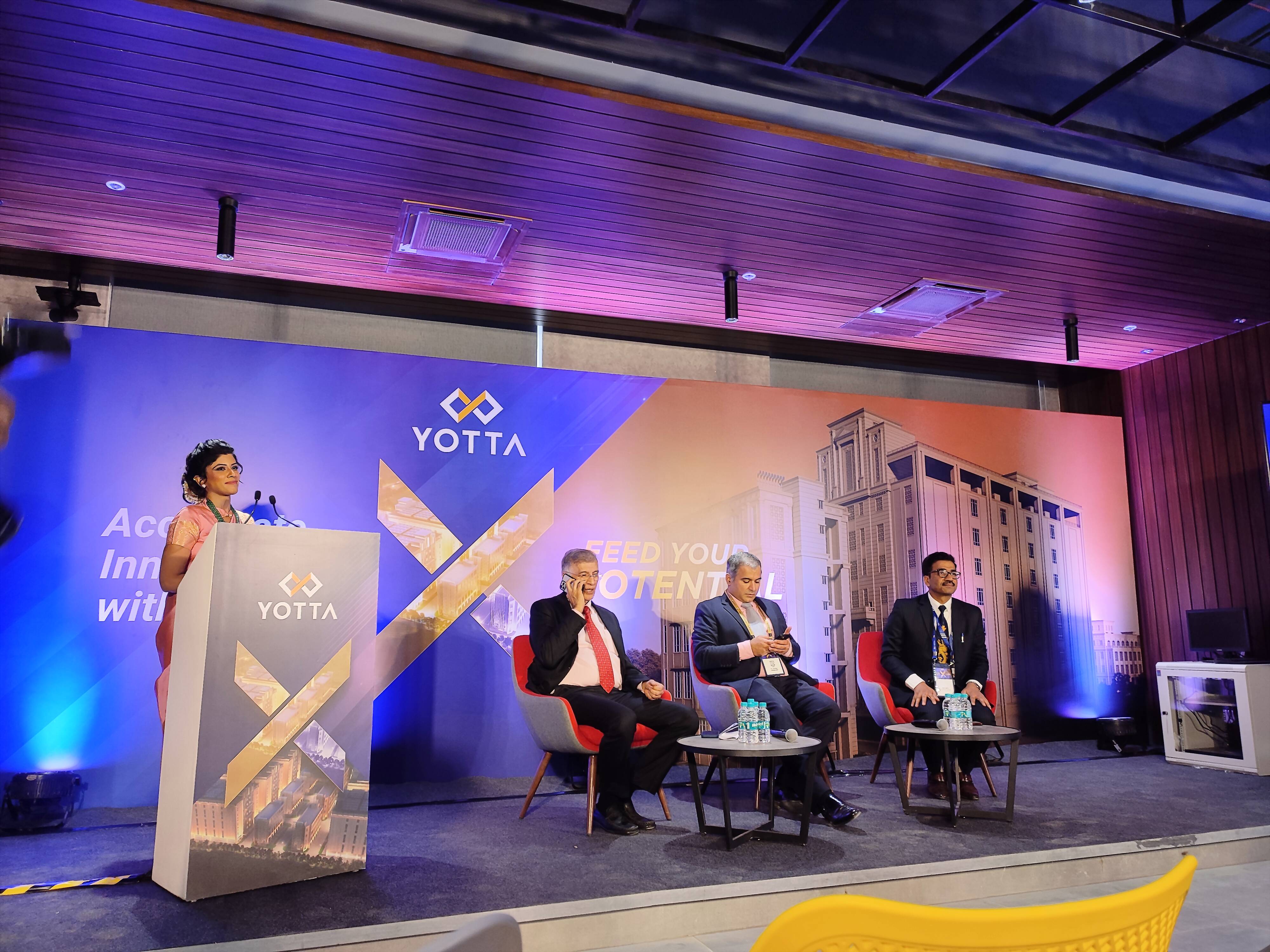
CYBER SAFETY
There is another issue related to data centres all around the world—cyberattacks. Around the globe, there are many corporate data centres which are very appealing targets for cybercriminals and malicious hackers.
As India is moving ahead with digitization under the ‘Digital India’ banner, establishments of data centres may also get the attention of threat actors.
While explaining about Yotta’s defence against such issues, the CEO stated: “We have full-fledged cybersecurity services. In Yotta, we have about 20 services providing cybersecurity measures.”
“We are also partnered with security-providing companies. We are also educating our customers regarding cyber threats,” he noted.
Furthermore, Gupta said that despite having all these layers of protection if a threat actor tries to access the system, in that case, the government’s regulatory process should play a role.
Although companies like Yotta will be providing their services to the economy while maintaining layers of cyber protection, the industry is also looking for the Data Protection Bill.
Read all the Latest India News here

















Comments
0 comment